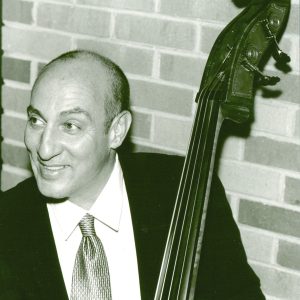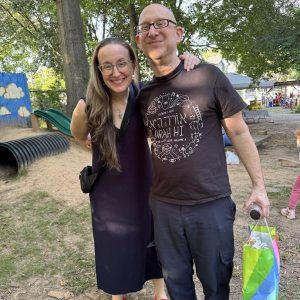Torah Commentary with Rabbi Laurence Rosenthal
Parshat Emor
Leviticus 21:1-24:23Name Calling!
By Rabbi Laurence Rosenthal

I'm sure you are familiar with the affectionate nicknames that friends might call each other, names that are the opposite of their stature. Somebody very tall might be called "shorty." Someone very big might be called "tiny." These titles not only call out the obvious, but they also disarm the encounter with such an individual, making somebody who would otherwise be imposing more approachable. Parshat Emor begins with a similar literary technique to help us approach a very difficult topic:
וַיֹּ֤אמֶר יְהֹוָה֙ אֶל־מֹשֶׁ֔ה אֱמֹ֥ר אֶל־הַכֹּהֲנִ֖ים בְּנֵ֣י אַהֲרֹ֑ן וְאָמַרְתָּ֣ אֲלֵהֶ֔ם לְנֶ֥פֶשׁ לֹֽא־יִטַּמָּ֖א בְּעַמָּֽיו׃
And God said to Moses, "Say to the Priests, the children of Aaron, and you will say to them: For a Nefesh [dead body], they will not impurify themselves by means of their people (Leviticus 21:1).
This verse is a bit confusing for many reasons. However, I'm most interested in the term the Torah uses here for a dead body – nefesh. Not only is this not a term regularly used for the dead [Met], it is precisely opposite. Nefesh means "soul." In fact, when God created the first human being in the Garden of Eden, it states:
וַיִּ֩יצֶר֩ יְהֹוָ֨ה אֱלֹהִ֜ים אֶת־הָֽאָדָ֗ם עָפָר֙ מִן־הָ֣אֲדָמָ֔ה וַיִּפַּ֥ח בְּאַפָּ֖יו נִשְׁמַ֣ת חַיִּ֑ים וַֽיְהִ֥י הָֽאָדָ֖ם לְנֶ֥פֶשׁ חַיָּֽה׃
And God-Elohim, formed the person, using dust from the earth, and blew into its nose a living spirit and it [the spirit] was for the person, a living nefesh [soul] (Genesis 2:8).
Why is this week's parsha using the word 'soul,' which usually connotes life, to refer to death? Is God trying to use a euphemism to make a difficult situation (death) more manageable? There are other terms that could be used to reference a dead body which might soften the edges.
The use of the term nefesh, reminds us of the very essence that makes our bodies sacred to us. As described in Genesis 2:8, the body is material being made of dust and earth. What makes the human experience special is the inclusion of that divine spark, the nefesh, making the body into a human being. This duality – body and soul – is complex and can be dangerous if not managed properly. As with many dualist systems, one side represents the good while the other side represents the bad. If we use this mindset for our body and soul experience, we might be tempted to view the body as bad. Of course, there are many religious communities that do just that. Bodily impulses are considered bad with hunger and sex often seen as dirty, while matters dealing with the soul are considered clean and pure.
As our Parsha wades into the discussion of impurity that is imparted when one has contact with a dead body, there might be a concern that this duality is going to come into focus. By insinuating that encountering a corpse makes somebody impure, it wouldn't be much of a stretch to assume that the body is impure and bad. However, this is not a Jewish idea. Therefore, the text refers to the body as "soul" to remind us that the body is more than dust and earth. The body made possible the experience of the soul on earth and must be treated with dignity, kindness, and reverence. This sort of thinking is what girds many of the rituals surrounding death and burial in our Jewish tradition.
The words we use matter. The terms we use to refer to things, ideas, or even other people make a difference in the way we treat them, include them, embrace them. Imagine what the world would look like if we approached every difficult situation with a bit more nefesh.
Shabbat Shalom






























